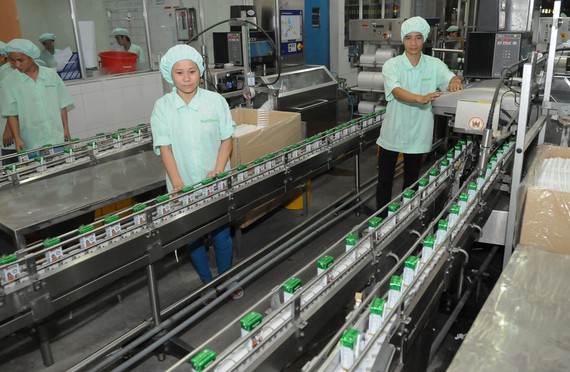Businesses in the HCM City price stabilisation programme have been encouraged to become more innovative in the face of tougher competition, experts have said.

Businesses in the HCM City price stabilisation programme have been encouraged to become more innovative in the face of tougher competition, experts have said.
The city programme has attracted the participation of 37 enterprises, including major firms with popular brands. Firms in the programme have to register their prices with the city’s Department of Finance. Prices must be 5-10 per cent lower than market prices.
Face masks and hand sanitisers have been added to the list of essential goods in the 2020-2021 programme. The 10 other items are rice, noodles and vermicelli; sugar; cooking oil; eggs; cattle meat; poultry meat; vegetables; processed foods; seafood; and seasonings.
According to the experts, the essential goods under the programme are facing high competition in the market, especially products of cattle meat, poultry, eggs, processed foods, and dairy products.
Firms that use science, technology and innovation will be able to improve their productivity and competitiveness.
In recent years, Viet Nam Nutrition Food JSC (NutiFood), which participates in the programme, has invested and cooperated with world-famous dairy corporations to develop raw materials for domestic and export markets.
In 2018, NutiFood contributed 50 percent of the investment in strategic cooperation with Sweden's Skånemejerier Ekonomisk Förening Company, the second largest nutrition group in Sweden and Backahill Group to build the Nutifood Sweden plant.
In 2020, Nutifood officially took over 100 per cent of the project and established the Swedish Nutifood Research Institute (NNRIS) to standardise milk lines for the Viet Nam market.
Swedish companies have experience in providing safe, sustainable and environmentally friendly manufacturing solutions.
They are helping Vietnamese enterprises develop the nutrition sector, said Björn Savlid, Trade Commissioner of Sweden to Viet Nam.
Meanwhile, Nguyen Ngoc An, general director of Vissan Joint Stock Company, the leading processed foods in Viet Nam, said that 100 per cent of pork and meat supplied for processing meets VietGAP standards and traceability requirements.
Vissan has also shifted from purchasing pigs from hundreds of different farms to cooperating with strategic suppliers that can control food quality and safety, as well as provide stable prices. Vissan also checks and analyses the ratio of fat and meat per pig in the barn to ensure fair purchasing prices for suppliers.
Late last year, the HCM City Business Association unveiled a digital transformation programme for small and medium-sized enterprises (SMEs) to improve their competitiveness.
The programme will help SMEs gain better access to digital transformation solutions at reasonable costs. A portal will be built to support the digital transformation efforts, and a digital transformation solution package called Service Catalog will be established to support businesses. – VNS





